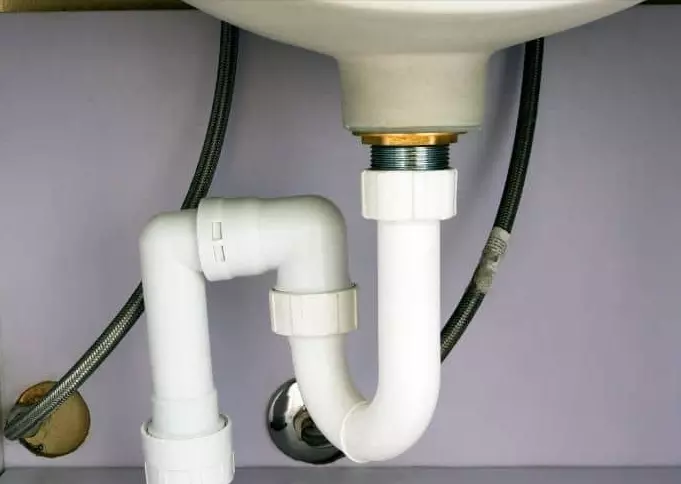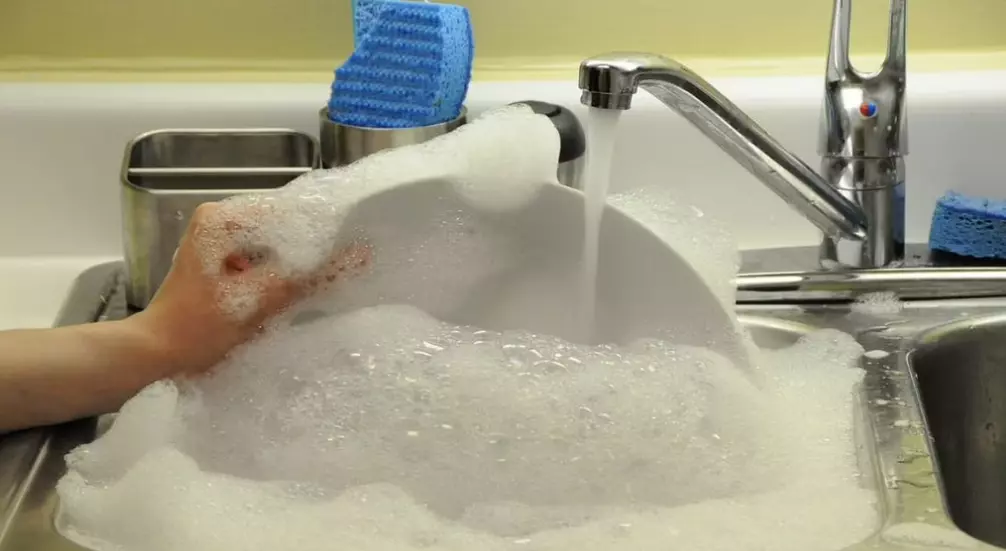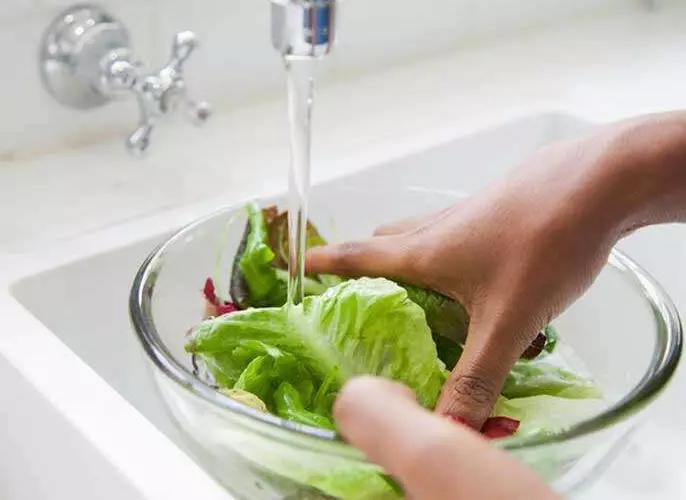Kitchen water is hard on its own, but adding nutrients makes it even better. Rather than sending kitchen water down the drain every time, there is a clog in the pipe, gardeners are using their dirty water to nourish their plants.
It can be a noble idea to save water and money by reusing it in your garden over and over again. Let’s find out the merits and demerits of doing this in this post.
Using Kitchen Water to Garden
The kitchen wastewater contains starch, rice hulls, etc. which are rich in organic material. Also, it contains nutrients like nitrogen, potassium, phosphorus, etc., which will be suitable for the soil.
The organic material that is present in the kitchen wastewater helps to retain soil moisture and also provides aeration to the roots.
Kitchen dishwater can to water plants directly. After washing dishes, simply collect the greywater in a bucket and use it to water outdoor plants.
However, if you use bleach or other harsh chemicals when washing dishes, it is best not to use this water on edible plants because these chemicals could leach into the soil and contaminate your fruits and vegetables.
Remember that your dishwater will be soapy unless you are using biodegradable soap. About that, it is not a good idea to use it for plants that are in bloom or that are about to bloom.
With regular watering practices in place, it should be easy to divert some water from the sink to your plants. This is a good alternative to draining kitchen water elsewhere like in the septic.
Is Kitchen Waste Water Safe for Gardening
Kitchen water is safe for gardening if it only contains organic waste that is friendly to plants and does not block their growth. But you have to reuse it. However, kitchen wastewater is not good for gardening if it contains dirt, chemicals and temperature that affect the growth of plants.
If the water is from cooking vegetables, especially ones prepared with oils and fats, then the water is most likely not safe to use in your garden.
Oil, grease, and fat contain non-biodegradable materials that could potentially harm or kill your plants or soil.
When people use a garbage disposal to grind vegetable or fruit peelings or other leftovers down the drain, the result is a mushy soup.

This goes through pipes into the septic system where it gets broken down by bacteria. This makes it safe for irrigation.
If you do want to use kitchen wastewater on your plants, you should boil the water first.
Boiling the water will remove the grease and oil so that it is safe to use on your plants.
This method is safe as long as you do not add any additional materials to the water such as soap or detergent.
Adding soap or detergent will introduce chemicals into the soil that could harm your plants or soil.
Is kitchen wastewater good for plants?
Kitchen water is economical and can be good for plants if well collected. Therefore, the answer is yes and no, depending on the source of the water. It depends on the type of food. The main concern is whether or not the water will harm the soil.

You can have a high level of nutrients in the water and still have it be good for your plants.
For example, if you cook a lot of fish, you will end up with lots of nitrogen in your water. This can benefit plants as well as harm them.
If you cook a lot of meat, then you will have lots of phosphorus in your water and that can harm your plants by causing algae to grow.
If you get worried about your plants being harmed by the nutrients in the kitchen waste water, then add some activated carbon to remove the excess nutrients. You can also add vinegar or lemon juice to neutralize the nutrients.
No. The water from the kitchen sink is not suitable for garden plants unless you boil it first and cool it.
Watering your garden with unboiled kitchen waste water is not a good idea. Water used to wash dishes, vegetables or meat may contain grease, detergent, bacteria, and food particles that can harm plants. People who have been sick may also transfer harmful bacteria to the vegetables they are washing.
How to Use Kitchen Waste Water for Gardening
If your kitchen water drains into the yard, you can use it for gardening. Mentioned below are some of how you can use your kitchen wastewater for gardening:

- Begin by collecting your kitchen water. Any clean, non-chemical wastewater is good for the garden, including water from cooking vegetables, rinsing pasta, and rinsing dishes. If you have a dishwasher, save the last rinse water for the garden
- Collect your used kitchen water in a container with a lid and place it somewhere out of the way until you are ready to use it. Do not store it for longer than 48 hours as bacteria growth will start to affect the quality of the water
- You can mix the kitchen wastewater with the soil before planting any plant or sapling. You can also dilute the kitchen wastewater and then spray it on your plants. But make sure that you spray it on the leaves when they are dry during early morning hours or late evening hours because spraying the diluted solution on wet leaves will lead to fungal growth.
- Use this simple formula to figure out how much water to put on your plants: 8 ounces of recycled kitchen water per 1 square foot of soil
- Perform rotate watering. If your garden structures allow, move where you are recycling kitchen waste water every time you give plants a drink so that no plant is over watered.
- If you have an outdoor garden then you can use a bucket or a container to store your kitchen waste water and then use that water for watering your garden plants.
- If you are using greywater on your lawn or garden, make sure that it does not pool up to where children can play in it. Greywater is best used within 24 hours of being produced. After that time, bacteria can grow and cause health risks. This is why it is good to have a shallow soak pit: so that the water can sink into the ground quickly before bacterial growth becomes problematic.
DO or DONTs of Using Kitchen Water for Gardening
Here are the DOs:
- Use cooled and filtered kitchen water for watering non-edible plants such as lawns, shrubs, and trees.
- Use cooled, filtered water from your dishwasher to water non-edible plants.
- Add a little detergent to washing machine water to make it more wetting and penetrate the soil better.
- Filter kitchen and laundry water through a coffee filter before spreading it on your lawn or garden. This will remove food particles.
- Make sure that you dilute it with at least 10 parts of fresh water per gallon that you are using. So, if you are using 5 gallons of used water, make sure that you have 50 gallons of fresh water to mix with it.
Here are the DON’Ts:
- Do not use kitchen water on edible plants unless you filter it filtered first. Do not use it on leafy greens, roots, or fruits that come in contact with soil, such as strawberries, carrots, and potatoes.
- Do not let food particles clog up your sprayer head or sprinkler system. Use a filter to keep nozzles clear.
- Do not use bleach or other strong chemicals in your laundry or dishwasher because these can be harmful to plants and soil organisms.
- Do not water your plants with salt. If you see that they are not well or that they have yellow leaves and are very dry, do not use kitchen water for a while and let them rest for a few days before giving them more liquid.
- Do not use greywater from dishwashing that contains grease or soap. It should be composted water instead so you do not attract pests such as raccoons and rats that might get drawn to the odors.

As a homeowner, I am specifically keen on home improvement. I am passionate about homes, yards, and home improvement. I blog on home ideas and reviews on solutions that make homes better.